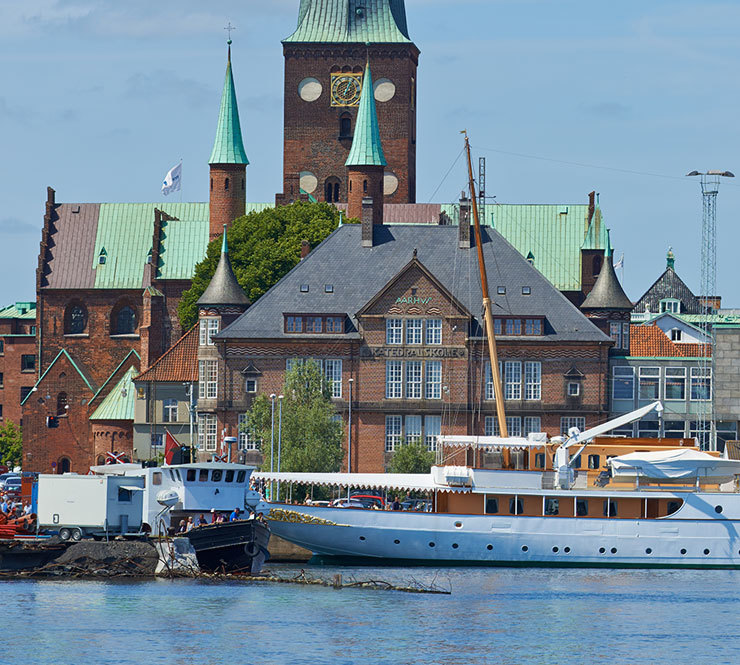COURSE DETAIL
This course provides an introduction to the application of various forecasting techniques. It introduces quantitative methods and techniques for time series modeling, analysis, and forecasting. Emphasis is also put on the applications in economic and business related areas. Computing is an integral part of this course, therefore all students are expected to do data analysis, modeling, and forecasting with computer programming software. The focus of the course is to use past data to predict the future. The key concept is that there is an underlying process that gives rise to the data. Using statistical properties of that process, we can develop forecasts. Forecasting methodology is presented in a lecture format in the first part of each class meeting. The application, however, is the centerpiece of the presentation. In the second part of the class meeting, students work on in-class applications. The course starts start with simple models that are widely used in business and progresses to modern methods that are used by professional forecasters and economists. It studies basic components of time-series data, such as trend, seasonal, and cyclical components, as well as basic model specification techniques, such as moving average and auto regressions, used in the forecasting of time-series. All forecasting methods are illustrated with detailed real world applications designed to mimic typical forecasting situations. The course uses applications not simply to illustrate the methods but also drive home an important lesson, the limitations of forecasting, by presenting truly realistic examples in which not everything works perfectly. Examples of the applications include, but are not limited to, forecasting retail sales, hotel occupancy, fishery output, consumer loan requests, predicting expansion of fast food chain stores, modeling and forecasting macroeconomic activity indices such as Gross Domestic Product, unemployment and inflation, modeling development of a small open economy, forecasting New York Stock Exchange index and currency exchange rates and many other applications.
COURSE DETAIL
This course introduces fundamental concepts of econometrics and data analysis that form the basis for data driven decision making, empirical analysis of causal relationships, and forecasting. It covers matrices and their use in linear regression analysis, probability distributions and their role in carrying out valid data approximations, and estimation methods and their importance in producing credible results of any data analysis. The course also introduces programming with R, which is the main programming language of statistical computing. It starts out with basic R operations and then, with time, students learn about ways to write their own functions in R.
COURSE DETAIL
This course provides a deeper understanding of migrant lives, experiences, and emotions in the 20th and 21st century, to give a fuller sense of the varied comparative and transdisciplinary methodologies that can be used in the study of the subject, and to introduce students to research work with a view to thesis writing. The course incorporates varied approaches including chronological, thematic, and theoretical aspects. For example: the relationship between psy disciplines and migration experiences; the emergence of refugee psychiatry and its relationship to broader political contexts; and the politics of humanitarian psychiatry. The course centers around a group of comparative and interdisciplinary case studies. These include displaced persons and forced migration from within and outside Europe after the First and Second World War; dissidents and refugees in Europe; guest workers and post-colonial labor migrants after 1945 in Britain, France, and Germany. The course also incorporates varied methodologies and sources, including printed and unprinted sources, oral history and life-story analysis, quantitative, qualitative, and comparative methods as well as film, memoir, and visual analysis.
COURSE DETAIL
This course is focused on the topic of infant and early childhood cognition, and draws on our knowledge of the developing brain and findings from neuroimaging. It begins with an introduction to the field of infant cognitive development, an overview of brain development, and current methodology for studying infants and their brains. The course covers a new topic each week, including both domains of knowledge (objects, number, faces, social reasoning, morality) and mechanisms of early learning (information expectation, information seeking, statistical learning). The course provides a state of the art on cognitive development and focuses on the most recent research that has transformed our understanding of what and how infants learn.
COURSE DETAIL
Fluid mechanics is concerned with moving and stationary fluids. This course builds on the concepts of classical mechanics and thermodynamics, and develops the mathematical and numerical framework to understand the behavior of fluids, from molecular to astronomical scales. The equations are fundamentally nonlinear, and rely heavily on vector algebra. As a result, it develops the necessary command of mathematical and numerical methods for handling nonlinear partial differential equations, as well as physical intuition about how to deal with moving and deforming parcels of fluids. Specifically, the course begins by discussing the basic properties of fluids and gases, then applies thermodynamics and conservation laws to arrive at the Navier Stokes equations. With their help, it explores the behavior of fluids under different conditions, with a special focus on concepts relevant in biology, oceanography, and complex systems theory: turbulence, vorticity dynamics, boundary layers, instability, and waves.
COURSE DETAIL
This course provides an introduction to sport and exercise psychology and associated psychological theories and methods. Theories relate to various contexts, including elite sport, sport and exercise at the broader community level, and sport and healthy lifestyle.
COURSE DETAIL
This course explores the meaning of gender both in different academic disciplines and in contemporary culture. It provides an introduction to the history of the concept of gender and examines how different understandings of gender shaped history; that is, how they formed our present understandings of past historical phenomena. The course traces how gender and sex shaped individuals and society and how both reflect gendered ideas. It looks at deeply connected issues to gender and sexuality, such as the body, the state, and the mundane life of the past; but also reflects on ideas of resistance, non-conformity, and intersectional issues. Particular emphasis is placed on visual practices and global connections.
Pagination
- Previous page
- Page 2
- Next page



